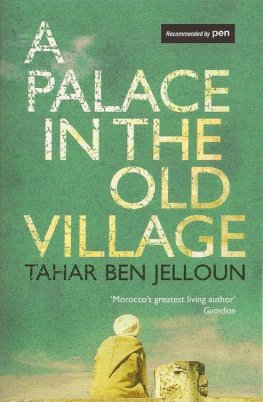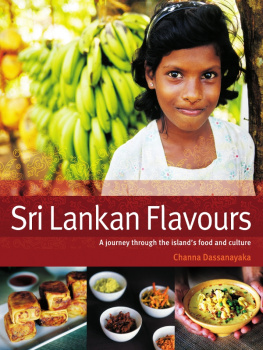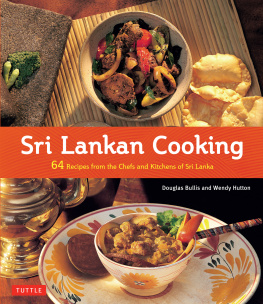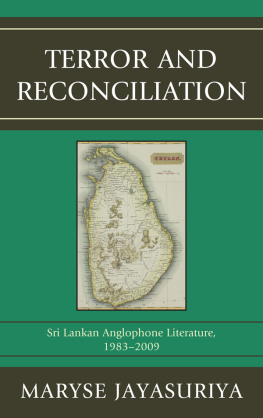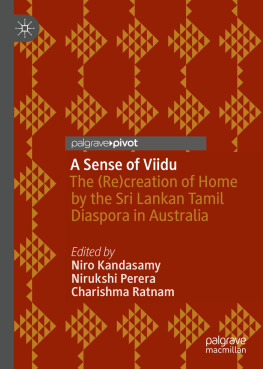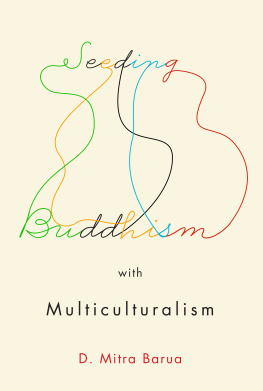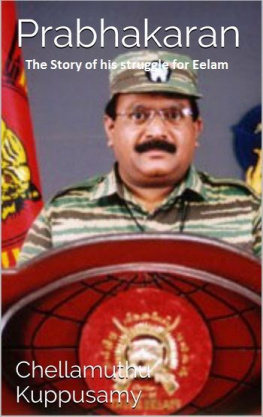Childhood in a Sri Lankan Village
The Rutgers Series in Childhood Studies
The Rutgers Series in Childhood Studies is dedicated to increasing our understanding of children and childhoods, past and present, throughout the world. Childrens voices and experiences are central. Authors come from a variety of fields, including anthropology, criminal justice, history, literature, psychology, religion, and sociology. The books in this series are intended for students, scholars, practitioners, and those who formulate policies that affect childrens everyday lives and futures.
Edited by Myra Bluebond-Langner, Board of Governors Professor of Anthropology, Rutgers University and True Colours Chair in Palliative Care for Children and Young People, University College London, Institute of Child Health.
Advisory Board
Perri Klass, New York University
Jill Korbin, Case Western Reserve University
Bambi Schieffelin, New York University
Enid Schildkraut, American Museum of Natural History and Museum for African Art
Childhood in a Sri Lankan Village
Shaping Hierarchy and Desire
Bambi L. Chapin
Rutgers University Press
New Brunswick, New Jersey, and London
Library of Congress Cataloging-in-Publication Data
Chapin, Bambi L.
Childhood in a Sri Lankan village : shaping hierarchy and desire / Bambi L. Chapin.
pages cm.(Rutgers series in childhood studies)
Includes bibliographical references and index.
ISBN 978-0-8135-6166-0 (hardcover : alk. paper)ISBN 978-0-8135-6165-3 (pbk. : alk. paper)ISBN 978-0-8135-6167-7 (e-book)
1. ChildrenSri LankaSocial conditions. 2. ChildrenFamily relationshipsSri Lanka. 3. Child developmentSri Lanka. 4. Child psychologySri Lanka. 5. ParentingSri Lanka. 6. Sri LankaSocial life and customs. I. Title.
HQ792.S72C53 2014
305.23095493dc23
2013037737
A British Cataloging-in-Publication record for this book is available from the British Library.
Copyright 2014 by Bambi L. Chapin
All rights reserved
No part of this book may be reproduced or utilized in any form or by any means, electronic or mechanical, or by any information storage and retrieval system, without written permission from the publisher. Please contact Rutgers University Press, 106 Somerset Street, New Brunswick, NJ 08901. The only exception to this prohibition is fair use as defined by U.S. copyright law.
Visit our website: http://rutgerspress.rutgers.edu
Manufactured in the United States of America
For Tucker Wentworth Chapin, who has grown up alongside this book
Contents
This book illustrates the ways that children are shaped by those around them, those who care for them, and those they feel strongly about. Likewise, this project and my own development have been shaped by many othersmore than I could possibly list in this short space.
The central role in this project was played by the people in Sri Lanka who shared their lives, their homes, their help, and their friendship with meand it is to them that I owe my biggest debt. Without their generosity, patience, and insight, this book would not have been possible and my research would not have been nearly so enriching. In order to protect the privacy of people in the place I have called Viligama, I have used pseudonyms and changed identifying information throughout the book, so I cannot name those who helped me the most. I hope they have some idea of how grateful I am to them. In addition, I am grateful to those who helped my family and me get settled into Sri Lanka and supported us while we were there: Loku Menike, Kush and Nandana, Velu, the Rajapaksa family, the Egodage family, and the teachers and families at Araliya Montessori School.
My work in Sri Lanka brought me into contact with fellow scholars and researchers who have shaped and supported my work in ways that I deeply appreciate. I am especially grateful to my research assistant, Inoka Baththanage, for her friendship as well as her assistance and insight. I am also grateful to the many others who helped me by tracking down information, transcribing and translating interviews, conducting surveys, and sharing their own research. This includes the village administrator (the Grama Niladhari), Kanthi at International Center for Ethnic Studies in Kandy, Tilak Jayatilake, sociology students from Peradeniya University, and my Sinhala teacher, Indika Ratnayake. I am grateful for the guidance of Professor Kalinga Tudor Silva, my supervisor at the University of Peradeniya, as well as advice from Professors Gerald Peiris, Indrasena Mendis, Sunil Goonasekera, and Gananath Obeyesekere. At Cornells summer language program, during which I was supported by a Foreign Language and Area Studies scholarship, Professor W. S. Karunatillake, his wife Kamalavithi, and John Paolillo gave me a solid start on Sinhala before I ever got to Sri Lanka. Friendships and conversations with other researchers I met in that class and in Sri Lanka continue to shape my work, as do conversations with fellow members of the American Institute of Sri Lankan Studies (AISLS). In addition, the staff at the U.S.Sri Lanka Fulbright office in Colombo made the early stage of my research possible, and the friendship of fellow students and scholars whom I met through that office and through the Intercollegiate Sri Lanka Education (ISLE) program in Kandy were also much appreciated.
The U.S.Sri Lanka Fulbright Commission was the primary supporter of my initial field research, along with the University of California, San Diegos Department of Anthropology and Friends of the International Center. Funding for the two subsequent field trips as well as a portion of the analysis and writing was supported by the National Institute of Mental Health through a Postdoctoral Training Grant at the University of Chicagos Department of Comparative Human Development under the leadership of Rick Shweder. Since joining the faculty of the University of Maryland, Baltimore County, I have been fortunate to receive time off from teaching and summer support to allow me to concentrate on this book, as well as travel grants to present preliminary pieces at national conferences. I am also grateful to the Lemelson/SPA Conference Fund, which supported a conference on attachment that challenged me to think through this material in new ways, and to the AISLS, which supported my participation in a workshop for new books about South Asia. All of the research presented in this book was conducted with the approval of an Internal Review Board, either at the University of California, San Diego or the University of Chicago.
As I have developed this book over the past decade, I have presented pieces of it along the way. It has benefited from feedback at many workshops and conferences, including national conferences held by the American Anthropology Association, the Society for Psychological Anthropology, and the Annual Conference on South Asia hosted by the University of WisconsinMadison, as well as more intimate groups: UCSDs Psychodynamic Seminar; the University of Chicagos Culture, Life Course, and Mental Health Workshop, Personhood and Psyche in South Asia group, and Clinical Ethnography Workshop; and UCLAs Mind, Medicine, and Culture workgroup. Portions of this book have also appeared in earlier published forms within Countries and Their Cultures (Chapin and Silva 2001), a special issue of Ethos


